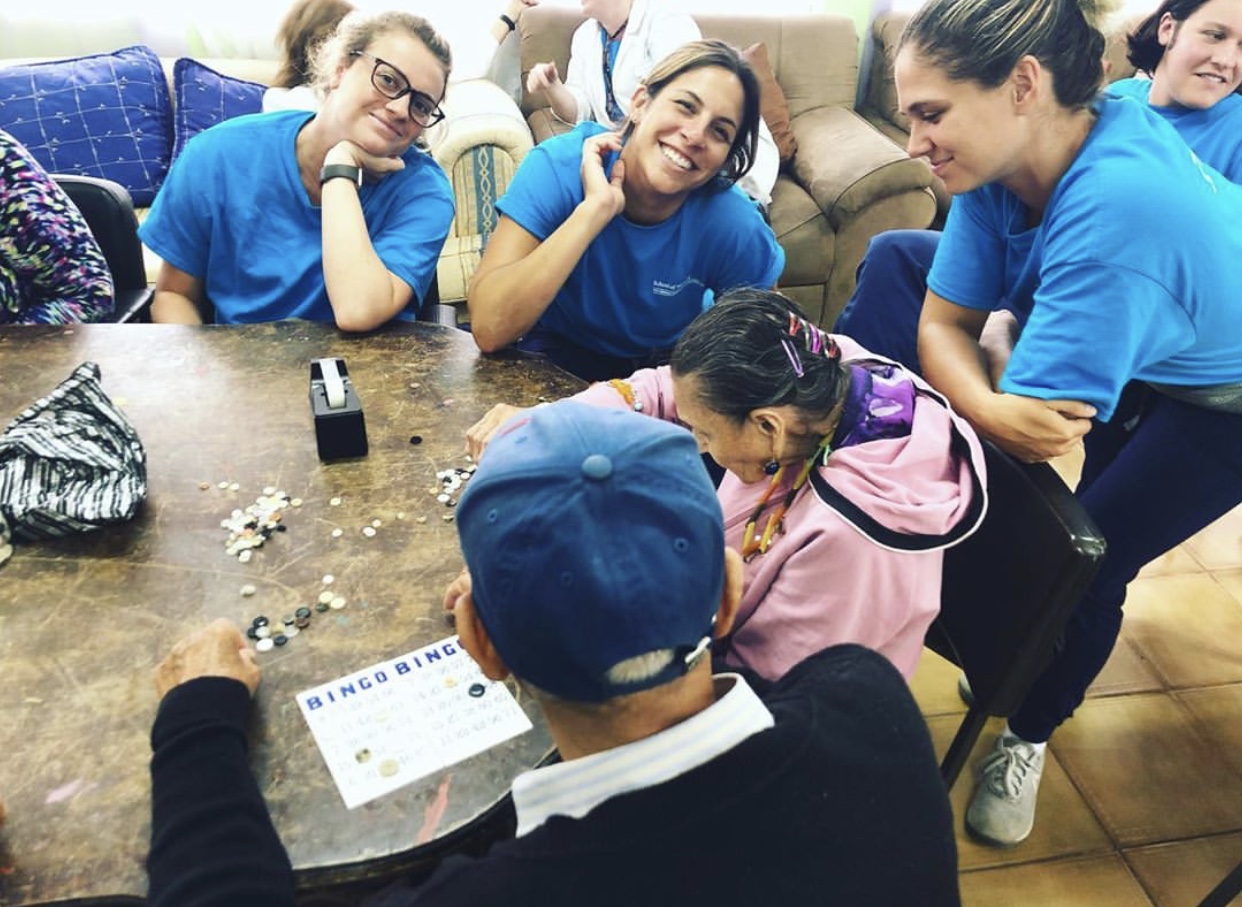GW Nursing partners with Universidad Hispanoamericana for this global experience. The goal for both universities is to provide a wide spectrum of opportunities and learning activities that mutually benefit students and faculty from both institutions of higher education. More information on the global experience in Costa Rica is available at go.gwu.edu/costarica
By Taylor Tashjian, BSN student
Costa Rica has seven provinces. I was fortunate to experience three. One week was not enough time in the capital, San Jose, but our time there offered an incredible opportunity to immerse ourselves in the culture and to study the country’s universal health care system.
The first level of care in Costa Rica is provided by the Equipos Básicos de Atención Integral en Salud (EBAIS). In English it means the Basic Teams of Global Health Care. These professionals provide preventative care in the community, often going door-to-door for home visits and mandatory vaccinations.
Upon arrival, we met with instructors from the local university, Universidad Hispanoamericana, to construct activities that would be taken along to each destination throughout the week. With limited materials — cardboard toilet paper rolls, yarn, poster board and animal cutouts — we were able to interact with populations from 2 to 103 years of age. Watching the university staff and nursing students come up with activities and teaching plans with household items was a great reminder that health care doesn’t always require bells and whistles. And although we didn’t have the opportunity to go into the community with the EBAIS, the success of their work was undeniable since the population as a whole was informed, educated and overall healthy.
Early in the week, we visited a day care for children ages 0-12 who were deemed at “social risk.” These children may, at some point, not have access to nutritious foods or be able to play safely in their neighborhoods. At the day care, though, the children were eager to play and demonstrated their English while sharing their culture and hobbies. Kids as young as 4 knew what foods were healthy and what habits were unhealthy.
Things came full circle later in the week when visiting Residencia Geriátrica Juan Bonal, a geriatric residence, where we met happy, healthy and engaged individuals, many older than 100. There was a clear absence of walking devices, hearing aids and glasses. No one was interrupted for blood sugar checks or insulin shots. No oxygen tanks or respiratory masks were present. People chatted and recalled events that took place more than 80 years ago as if they occurred yesterday.
Costa Rica was a completely different environment than any of us had anticipated. My colleagues and I embarked to San Jose thinking we may lend a hand or two but, not long after arrival, we realized the people of Costa Rica should be sending their students to teach us about successful health care! Their health care system is affordable and accessible and heavily stresses education and prevention, and this has helped to create a healthy population. This trip was an eye-opening reminder that not every country needs saving. I will remember the importance of prevention and the role nurses can play in education and advocacy. The Costa Rican saying is “Pura Vida,” translating to “simple life” or “pure life.” After my time in this beautiful country, I can’t think of anything more fitting.


